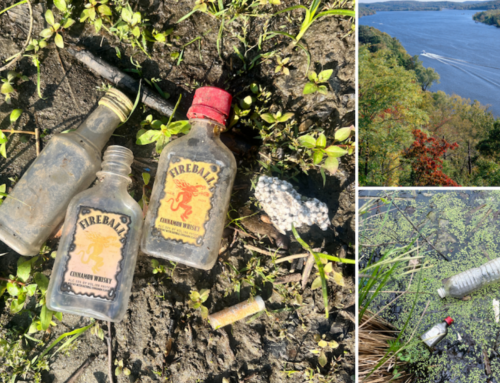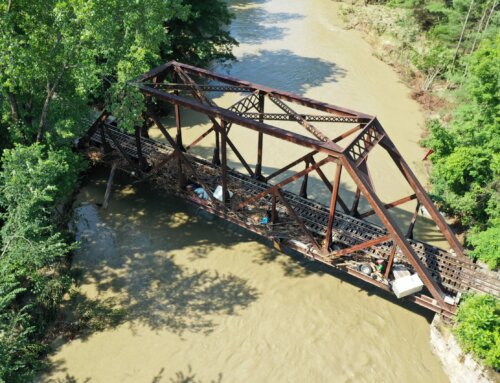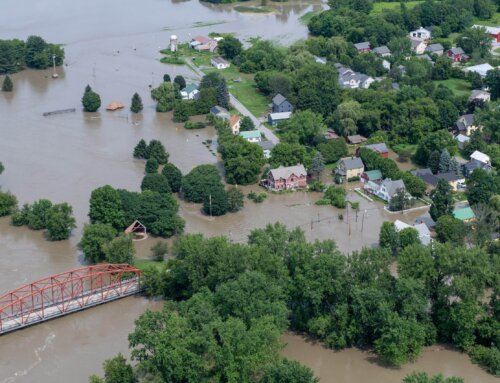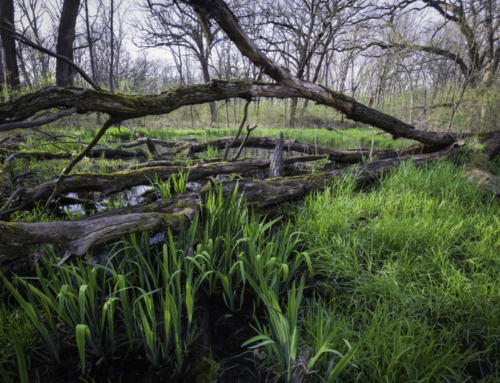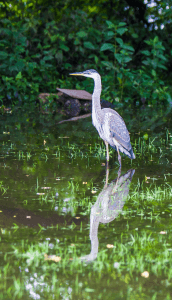
February 16, 2018
Emily Boedecker, Commissioner
VT ANR/Dept. of Environmental Conservation 1 National Life Drive
Montpelier, VT 05620
CRC comments on the Draft 2017 Basin 10 Tactical Basin Plan
Dear Commissioner Boedecker,
The Connecticut River Conservancy is formally submitting comments on the State of Vermont’s Tactical Basin Plan for Basin 10 (the Black and Ottauquechee Rivers and adjacent Connecticut River and tributaries).
In general, CRC supports the recommendations and actions to improve and protect these waters. Since this Plan will be used by the Agency of Natural Resources (ANR) to guide decisions regarding allocation of resources as well as the review of permit applications for potential impact on water quality, CRC believes that the following additions and/or revisions should be made to the Plan prior to it being adopted:
FERC Licensing & Flood Resiliency – Given that this newest Plan will likely have a significant impact on both active and future Federal Energy Regulatory Commission (FERC) licenses within the region, it would be beneficial to specifically identify the dams with active FERC licenses that will expire within the duration of this Plan. It is also important to note that this Plan will likely influence the FERC Integrated Licensing Process (ILP) for hydroelectric facilities within the Basin and could possibly be used as leverage in approving operational alterations sought out by stakeholders.
The inclusion of implementation strategies that address flow alteration through collaboration with dam operations and state regulators (Table 18, Pg. 99) is a welcomed addition and imperative to the successful restoration of natural flows within the Basin. CRC additionally recommends that the Plan supplement flow alteration strategies with flood resiliency strategies within the context of large hydroelectric dams.
River Corridor Delineation – CRC encourages delineating a river corridor on the Vermont side of the Connecticut River in order to expand upon assessments and river corridor planning that have been completed throughout Basin 10 and also support one of the Plan’s top objectives to protect river corridors.
Reclassification of Waters – CRC backs the reclassification of surface water bodies to A(1) or B(1) based on separate and specific uses. By expanding classification to include B(2), this encourages a more expansive reclassification of waters to B(1) and will ultimately lead to an increase in the overall protection of our water resources. Allowing for water bodies to be reclassified based on specific uses such as aquatic biota and wildlife, fishing, boating, etc. is important for continued protection of both the natural state and recreational value of our water bodies. CRC urges ANR to promote the reclassification of surface water bodies to either A(1) or B(1) based on as many applicable existing uses as possible.
Outstanding Resource Waters – CRC also supports the continued designation of exceptional rivers and streams as Outstanding Resource Waters (ORWs). These designations reflect the continued dedication of the State of Vermont to preserving natural resources and promoting exceptional water quality. The limited number of ORW designations in Basin 10 is surprising considering ANR has the authority to designate all streams or rivers with excellent health as ORW and is already proposing numerous reclassifications of waters to A(1) or B(1) within this Plan. ANR has an abundance of water quality, macroinvertebrate and fisheries data to support additional ORW designations.
In addition to the four waterbodies proposed for ORW designation within this Plan, CRC encourages ANR to designate the following waters as ORW without petition: Great Brook, Black River Tributary #9, Tiny Pond Stream, Kilburn Brook Tributary #1, and Barnard Brook Tributary #6. As a matter of policy, ANR should give ORW designation to all waters that are classified as A(1) in order to give added protection to exceptional waters.
Existing Uses – In the most recent draft of the Plan, ANR reaffirms the stipulation that “all lakes and ponds in the basin have existing uses of swimming, boating and fishing (pg. 93).” ANR also recognizes the fact that fishing activities in streams and rivers is “numerous” and “widespread” but fails to provide the same protections to all streams and rivers as they do all lakes and ponds (pg. 93). ANR even acknowledges the fact that smaller streams provide important nursery habitat for fish stocks and continues to protect them at a level that is equal to that of downstream.
Vermont’s streams and rivers are no less intrinsic and have no less extensive use for recreational activities than our lakes and ponds. If ANR truly wants to protect all surface waters, it would be in the best interest to designate fishing as an existing use in all streams and rivers and swimming as an existing use in all waters with sufficient depth. This designation would not only support ANR’s position that recreational uses should be “preserved and improved” but would also take the burden off of individuals, organizations, etc. that must provide this list of uses during the permitting process.
Lakeshore Protection Rules – CRC requests that ANR take the necessary steps to provide the same lakeshore protections to the reservoirs upstream of the Wilder, Bellows Falls and Vernon dams as they have for all the reservoirs at the dams above Ryegate on the main stem Connecticut River. ANR’s lakeshore protection rules are no less important for the lower river, and certainly there can be no justification for providing these protections for northern Vermont and completely ignoring southern Vermont. Providing protections for reservoirs in the southern region would also align with one of the top objectives of the Plan which encourages shoreland protection and promotes implementation of lakeshore best management practices (pg. 13).
Thank you for the opportunity to comment on this draft Plan. We appreciate the work done by Marie Caduto on this Basin 10 Plan, and we are committed to continuing to work with ANR to improve water quality and limit potential impacts to all our water resources.
Sincerely,
Ron Rhodes, River Steward Kathy Urffer, River Steward
South Pomfret, VT Brattleboro, VT
rrhodes@ctriver.org kurffer@ctriver.org
802-457-6114 802-258-0413


